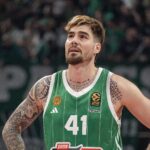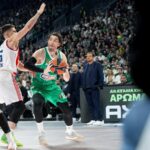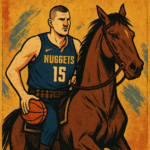 To give you the preview on Cibona Zagreb, there was only one address we could ask. Not because there is nobody else but Karlo Dzeverlija is considered as the main reference about Croatian basketball. He is the author of kosarka.hr (crobasket.com) and also the editor in chief of Basketball magazine “Croatian basketball”.
To give you the preview on Cibona Zagreb, there was only one address we could ask. Not because there is nobody else but Karlo Dzeverlija is considered as the main reference about Croatian basketball. He is the author of kosarka.hr (crobasket.com) and also the editor in chief of Basketball magazine “Croatian basketball”.
Overall record prediction: 4-6
After the complete failure in the 2007-08 campaign, Cibona made it clear that big changes are about to happen. But after the worst season in recent club history, Cibona remained standing on its old foundations (without significant changes in the club management), while it was only the roster that suffered the majority of changes. But let’s face it, renewing the bigger part of last season’s roster is something Cibona repeats every summer.
The club prolonged the contract with Marin Rozic prior to adding a trio of Croatian National Team players – Davor Kus, Nikola Prkacin and Branimir Longin. Croatian NT power forward Damir Markota also signed a deal with Cibona, but he forced the club to release him after he voluntarily failed to show up for the trip to St. Peterburg. At the same time, Cibona struggled with another runaway – American PG Earl Calloway – who returned to the US without telling anyone in the club. Calloway eventually returned to the team after a ten-day absence so Cibona managed to overcome its first, early crisis.
In the meantime, Cibona added Rawle Marshall, who’ll present a serious shooting danger from the perimeter, while Markota was replaced by Jared Homan only a week before the start of the new Euroleague season.
The biggest positive change as opposed to last season happened on the bench, where Ivan Sunara was replaced by Velimir Perasović as the new head coach. The European basketball fans know him well as once a fantastic scorer for Jugoplastika Split and Taugres or as head coach of Spanish clubs TAU Cerámica and Estudiantes more recently. “To play modern basketball you need aggressive players, guys who can play in high tempo both offensively and defensively”, Peras said back at the start of training camp, revealing his preference for aggressive defense. That should be the trademark of Cibona this season.
What does Cibona expect?
All-time highest club budget (estimation – about four million euros) has secured a quality nucleus of the team. But short bench might prevent Cibona from achieving a surprisingly good result in the Euroleague. Same as every year, the club counts on no more than advancing to Top 16, which is a realistic goal. The focus will be on the regional Adriatic League, where Cibona needs to finish in front of Zadar. That way Cibona would earn more points from the ULEB and secure another contract with the Euroleague. That is the club’s primary goal of the season. On the other hand, the fact that its budget is really big for Croatian standards (twice the budget of No.1 competitor Zadar) means that winning the Croatian championship and national cup is the ultimate goal. Basically same as every year.
Assessment?
In spite of sudden roster improvisations late in the preparation period, Cibona has the right to aim at advancing to Euroleague Top 16 in front of Air Avellino and Le Mans. Club’s history, experience in the Euroleague, hostile home court and eventually the concentration of quality players is what gives Cibona the advantage of the Italian and French representatives in Euroleague’s Group A. Four or five victories in the first group stage seem to be a reasonable ambition when you have favorites such as Olympiakos, Unicaja and Maccabi in the group as well.
Final Four participants: Panathinaikos, CSKA, Olympiakos, FC Barcelona
Euroleague winner: Panathinaikos
written by Karlo Dzeverlija




Leave a Reply